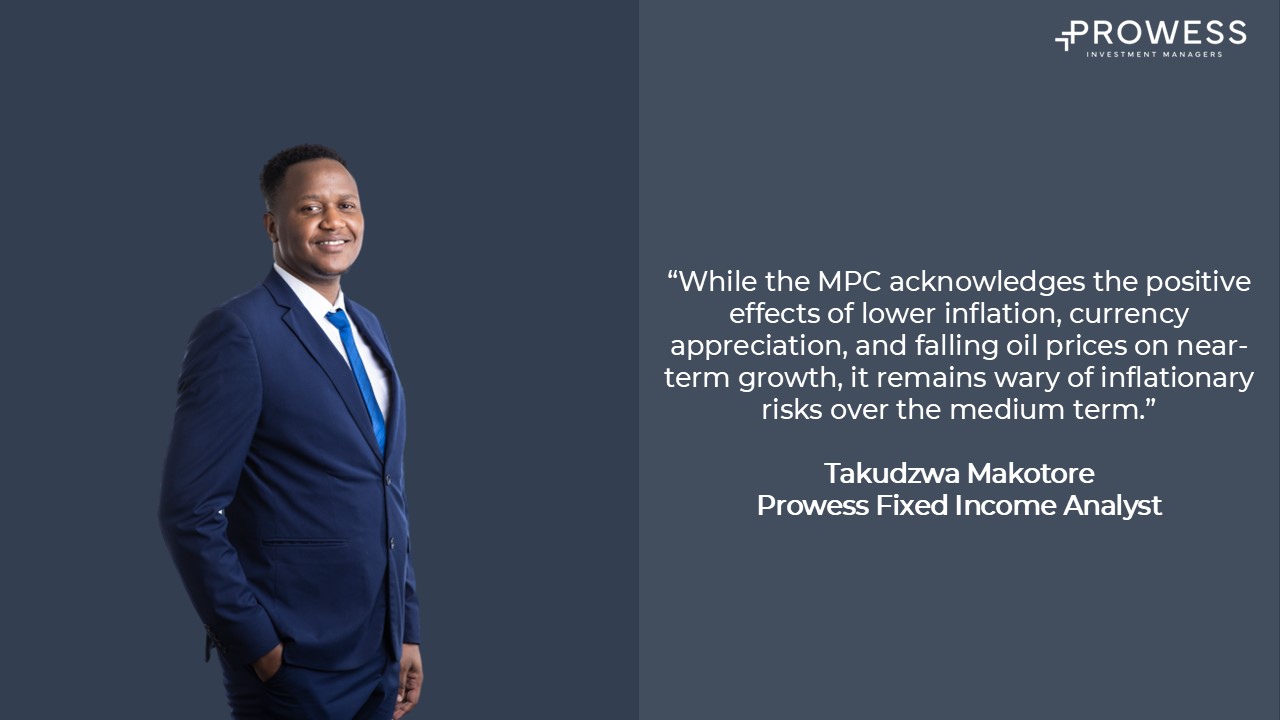Last week, US equity markets rallied, and treasuries strengthened, as investors sought safe-haven investments in the wake of the escalating Ukraine-Russia conflict. Locally, the Monetary Policy Committee (MPC) unanimously decided to cut the repo rate by 25 basis points to 7.75% in line with market expectations.
International Market Developments
Last week U.S. stocks pared gains as the market assessed escalating Ukraine-Russia tensions and digested the disappointing Nvidia results. The dollar strengthened, the S&P 500 gained 1.33% and the Nasdaq 100 gained 1.7%, recovering from earlier losses in the week of over 1% following Ukraine’s missile strikes on Russia. US treasuries closed the week stronger by 5 basis points as investors sought safe-haven investments when news of Russia striking ballistic missiles at Ukraine broke.
In the United Kingdom, CPI for October came in higher than expected, at 2.3% year-on-year from 1.7% year-on-year in September. The increase came on the back of a jump in energy bills during the month. On a month-on-month basis, CPI increased by 0.6% in October, also more than expected, after having stagnated in September. Core CPI came in hotter than expected at 3.3% year-on-year in October from 3.2% in September. Last week’s data supports the case for the BOE to adopt a cautious approach in cutting rates at the December monetary policy meeting.
Looking ahead, investors will closely watch the FOMC meeting minutes due to be released on Tuesday for monetary policy direction. Core PCE data is due to be released on Wednesday and this will provide further clues on the likely policy direction in the December meeting.
Local Market Developments
The South African Reserve Bank’s (SARB) Monetary Policy Committee (MPC) lowered the repo rate by 25 basis points to 7.75% in last week’s meeting, a move largely anticipated by markets. However, the accompanying statement signals a cautious stance on further rate cuts. While the MPC acknowledges the positive effects of lower inflation, currency appreciation, and falling oil prices on near-term growth, it remains wary of inflationary risks over the medium term. These concerns arise from uncertainties around administered prices, global inflation pressures, and potential wage increases. Emphasizing a data-dependent approach, the MPC’s reluctance to provide clear forward guidance suggests that future policy decisions will be closely tied to the evolving inflation outlook. In the latest projections, the SARB revised its 2024 headline inflation forecast down to 4.5%. The 2025 forecast holds at 4.0%, but the 2026 forecast was adjusted slightly upward to 4.6%. Core inflation has also been revised, with estimates now at 4.3% for 2024, decreasing to 3.9% in 2025 but gradually rising in subsequent years. Persistent supply-side pressures, especially in food and energy, are expected to influence inflation dynamics.


